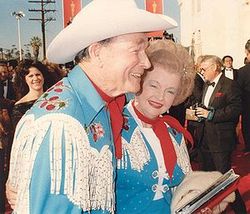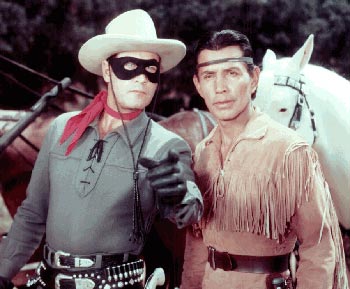 Roy and Dale. Dale's husband before Roy was Robert Dale Butts. If she had taken his name, she could have been Dale Dale Butts. Roy and Dale. Dale's husband before Roy was Robert Dale Butts. If she had taken his name, she could have been Dale Dale Butts. "If I Had a Boat" was the song I loved the most from Lyle Lovett's album Pontiac, and then the next album, Lyle Lovett and His Large Band sealed the deal on my fandom. There's something about his weary plaintive voice, excellent musicianship and quirky humor that captured me. For me, the relevant question is not, "why did Julia Roberts marry Lyle Lovett?" but "why did she leave him?" So, on to "If I Had a Boat." In a 2001 interview on NPR's Morning Edition, "Lovett claims ["If I Had a Boat"] is a true story -- he really tried to ride a pony across a pond, and wished he had a boat." In a 1998 interview with Performing Songwriter, he was asked: How did you approach a song like “If I Had A Boat?” "I don’t know, I think songs like that approach you. I remember being at home just playing the guitar that morning and I sort of played the chorus. But other songs are more crafted than that or take longer to work on." Those are good stories, and possibly true, about riding a pony across a pond, or sitting down with a song mostly formed in your head. However, in a 2012 interview with Acoustic Guitar, Lovett said this about songwriting: “I think you have to have a reason to write something. In Nashville, which is still an extraordinary factory music town, there are so many wonderful songwriters and craftsmen who go to work everyday to write songs, and they are so skilled at doing that. That might be your objective, to write a song like that, which is fine. Any reason to write something, I think is a good one. But you have to have a reason, you have to have an objective. I guess I should say, I have to have an objective, I have to have a reason to write something, just so there’s a point to it, just so I can get from start to finish.” So what was Lovett's objective, his reason to write this song? What's it about? Well, it's all about leaving, and independence. The boat is a classic metaphor for getting away in America (see: Moby Dick) and the horse equally or more so in Lovett's native Texas. The first verse is about not wanting to be tied down to a wife, referencing Roy Rogers and Dale Evans, the celebrity cowboy couple (as well as Roy's horse Trigger). The second verse reveals that it's not just about being single, as the perspective shifts from the Lone Ranger to Tonto, and Tonto sticks it to the man. Basically, he sums up the song "Take This Job and Shove It" in the line, "Kiss my ass, I bought a boat, I'm going out to sea." The third and final verse gets even more abstract in the pursuit of independence. Rather than be human ("I wouldn't need no sneakers"), the narrator would rather be a bolt of lightning that comes and goes wherever he pleases. So, the chorus is about longing for escape and each verse specifies another step in his emancipation: from marriage, from work, from humanity. And he writes all this with imagery and childish logic that makes it all seem so innocent.
Dave Matthews has been known to do this one live. Here he is from 1999 with Tim Reynolds (decent audio, no tripod). Ed Robertson of the band Barenaked Ladies likes the song, too. The band has performed the song live, but apparently without any decent microphones in the audience. But here’s audio of Ed playing the song in his bathroom (from The Bathroom Sessions bootleg): Lovett doesn’t play “If I Had a Boat” in this short set but he performs in the intimate setting of an NPR Tiny Desk concert with singing fiddler (fiddling singer?) Luke Bulla. I was surprised at how much he used the capo in that video (a capo is that movable clamp on the neck of the guitar that essentially retunes the guitar into a higher key). In the 2012 interview with Acoustic Guitar, he addresses this:
Similarly, from a 2004 interview with Acoustic Guitar:
Okay, it won’t embed on this site, but if you want to see Lovett’s original video for “If I Had a Boat” (with a full head of lush, dark, Eraserhead hair) interspersed with interviews of old guys, this is where you need to go. I wish the audio was better on this last one, but here’s Lyle again, with John Hiatt adding a tasty lick or two:
2 Comments
Bill Lavery
6/11/2024 07:49:15 pm
I always thought it was a little kid describing his crayon drawing and it is really about wanting to stay a little boy. Not growing up and getting married. It's even using childlike grammar.
Reply
Leave a Reply. |
AuthorJack Cheng directs the Clemente Course in Dorchester, excavates in the Middle East, and writes in Waban, MA. Archives
October 2019
Categories |



 RSS Feed
RSS Feed
